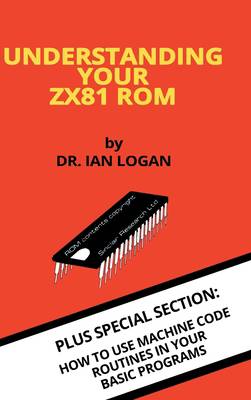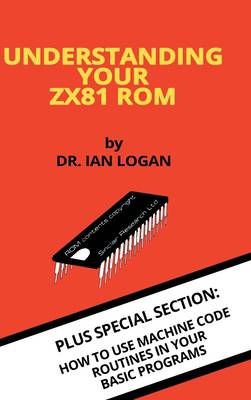
- Retrait gratuit dans votre magasin Club
- 7.000.000 titres dans notre catalogue
- Payer en toute sécurité
- Toujours un magasin près de chez vous
- Retrait gratuit dans votre magasin Club
- 7.000.0000 titres dans notre catalogue
- Payer en toute sécurité
- Toujours un magasin près de chez vous
Description
Launched in 1981, Sir Clive Sinclair's ZX81 - successor to his ZX80 released the year before - was designed to be a low-cost introduction to home computing for the general public. It was a hugely successful machine, with over one and a half million 'official' units being sold; many more unauthorised 'clones' were also produced, particularly in Russia and other Eastern Bloc countries of the era. One could either purchase the machine pre-built, or - as a significant number of consumers did - buy it in kit form for assembly at home at a slightly cheaper price. This 'DIY' approach, encouraged by Sinclair Research, became a core element of the computer's genetic make-up. Those who were comfortable putting together the four silicon chips and other such components were just as keen to poke around the machine's memory, learning as much as they could about its capability; the programs they would write could easily be shared once saved onto a standard audio cassette.
This book helps the reader truly understand how the ZX81 works, with sections covering everything from the structure of the Z80 microprocessor used in the machine to the computer's registers, ALU and more.
With an introduction to both binary and hex, Understanding Your ZX81 ROM helped many people get the most out of their machine in the very earliest days of home computing.
Spécifications
Parties prenantes
- Auteur(s) :
- Editeur:
Contenu
- Nombre de pages :
- 168
- Langue:
- Anglais
Caractéristiques
- EAN:
- 9781789829884
- Date de parution :
- 10-08-22
- Format:
- Livre relié
- Format numérique:
- Genaaid
- Dimensions :
- 152 mm x 229 mm
- Poids :
- 417 g

Les avis
Nous publions uniquement les avis qui respectent les conditions requises. Consultez nos conditions pour les avis.






